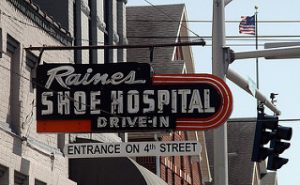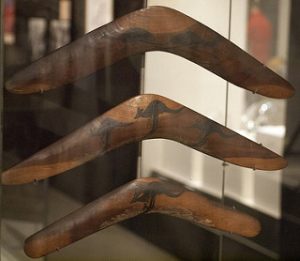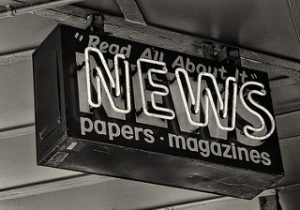 Hello there, agency or client side job hunter! Your friendly recruiter here. I continually appreciate the similarities between an ad agency’s hunt for new business and someone hunting for a new job.
Hello there, agency or client side job hunter! Your friendly recruiter here. I continually appreciate the similarities between an ad agency’s hunt for new business and someone hunting for a new job.
In many ways, an RFP response is a lot like a resume.
In new business, submit a terrific RFP, and improve your chances of moving to the credentials round. And in a job search, after you submit a great resume, you increase your odds of getting a phone call from HR or a recruiter.
So here are three things learned from successful RFPs and new business pursuits that can make your job search and resume more effective.
1. Ask yourself if you’re a fit for the job (and know why)
When an agency gets an RFP from a prospective client, they qualify it. As a candidate, you’re doing the same thing as you look at a given job. Is this job a good fit for you? Some starter questions to ask yourself:
- How does this job match up with your past (in terms of skills, career footsteps, pedigree and more). Look at it from your target’s perspective. The more you have to stretch your past to make it work, the less chance you have of earning your prospective employer’s interest.
- How might this fulfill your personal needs (location, commute, work/life balance, community, etc.). How does this new gig fit in your life design? Are there tradeoffs? How might that impact your personal happiness index?
2. Move beyond what you read in the job description
In many new business situations, agencies win because they know more than their competitors. Same thing applies when you’re pitching for a new agency job. (Or even a client side one.) Augment what you learn in a job description with your own research. Check out the agency’s website. Get on The Google. Tap into your network. Ask yourself these kinds of questions:
- How’s the work? How does it compare to your own over time? How can you impact it?
- How do people who work there describe the agency?
- Is the agency up or down? Winning business? Hiring? Firing?
- What can you learn from the agency’s social media footprint?
- Who do you know that works at the agency now?
- If you’re applying to work on a specific piece of business, what’s the brand situation?
- Who else is on the agency’s client roster?
- What’s the senior leadership team like?
As you learn more about the opportunity, I encourage you to again explore the fit question.
3. Reflect what you know about the job in your application
“Application” here means more than just your cover letter. Here are three areas to think about:
Your Way In
While you can certainly apply to the opening you see on LinkedIn or some other online posting, you don’t want to swim in the sea of sameness with all the other people who get dumped into the agency’s candidate tracking system. You’ll have a better chance of being considered for the job if you augment that application with a human touch. Leverage your connections. This could include your friendly outside recruiter.
Your Cover Letter and/or Introductory Email
This is critical. Here, you’re providing a short, high-level view of how you can benefit the agency. What is it about you that screams this is a great fit? Typically, when I write about a candidate, I use bullet points. Because I know recruiters are busy and they expect me to present candidates that are already good fits for the job.
The bullet points are short one-liners that positively compare the candidate to the job. They almost always move beyond the skill set and address the candidate’s cultural fit.
You can do the same thing in your introduction, demonstrating how your skills and past experiences can help the agency and align with their needs.
Your Resume
In a new business pitch and successful RFP response, everything is hand-crafted and customized.
In your job search, your resume could be customized, which would increase your odds of earning an interview. Not many candidates do this. And I get it. This takes time. But your resume is a big part of your internal presentation (what the agency recruiter says about you). Hiring managers will see it.
Answering these kinds of questions can help you determine if it’s worth the investment to customize your resume:
- How many jobs at the agency are like the one you’re applying for?
- How badly do you want this job?
- What is the airspeed velocity of an unladen swallow?
We’re just scratching the surface! There’s much more that job hunters can learn when they apply agency new business thinking to their job search. Thanks for reading. Should you have any questions, please feel free to contact me.
Photo credit: joannapoe 2011-04-17_14-28-47 via photopin (license)
 Hello, fellow advertising agency recruiter. I was just working on something that reminded me of boomerang candidates and how much I like them. When I take a look at someone’s resume and see they’ve been hired by one agency more than once, it suggests a potential good hire.
Hello, fellow advertising agency recruiter. I was just working on something that reminded me of boomerang candidates and how much I like them. When I take a look at someone’s resume and see they’ve been hired by one agency more than once, it suggests a potential good hire. Most agency recruiters focus on filling their openings. Right now I’ve got two new business searches going. So I spend time looking for professionals that can find and win new business. But you might be looking for strategists right now. So you’re spending your energy on finding planning candidates.
Most agency recruiters focus on filling their openings. Right now I’ve got two new business searches going. So I spend time looking for professionals that can find and win new business. But you might be looking for strategists right now. So you’re spending your energy on finding planning candidates. Being an advertising agency recruiter is hard work. Here are just a few things you do on a daily basis…
Being an advertising agency recruiter is hard work. Here are just a few things you do on a daily basis… Hello there, job seeker. No doubt about it. Places like
Hello there, job seeker. No doubt about it. Places like 